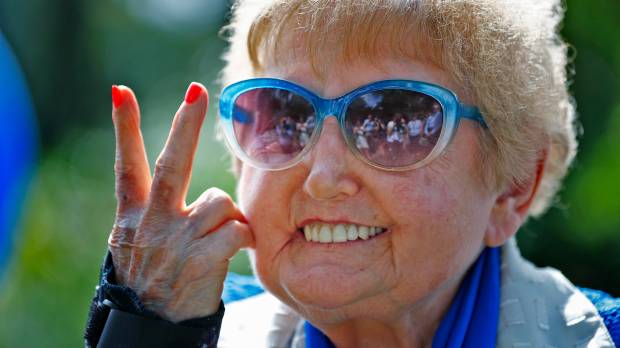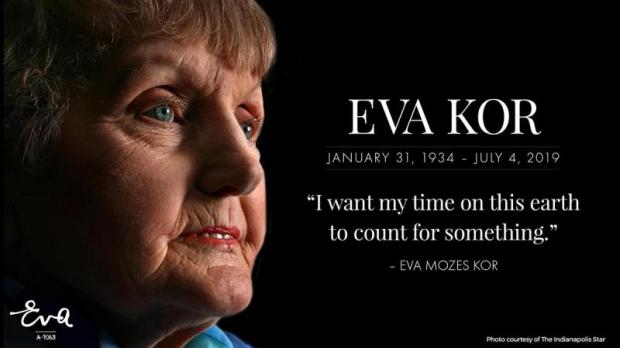I attended the pubic memorial for Eva Moses Kor, a woman who ended up in Auschwitz with her 10yr old twin sister. She was 1 of 20 twins who Joesph Mingle experimented on. She saw her Mother and Father and older siblings taken away. They did not survive. She and her sister did when the camp was liberated by the Russians.
I was also there to hear from Eva from beyond on how to deal with my own forgiveness. Her light passed onto me for me to pass on to someone else.
Eva eventually married and moved to Terre Haute Indiana. While living there and working as a realtor and raising her children, she was bullied by white hatred and her small Holocaust museum was burned. Eva’s horrific experience at Auschwitz pushed her on a campaigner to local papers and networks to try to find if Mingle was still alive. Life was hard for her in the 70’s. Writing day in and day out to get someone to hear her story. One day a journalist took the chance with Eva. Soon, her story had become an international movement to find Mingle. Later they determined they had found his body and no he was not living.
I wonder about all the rage you’d feel toward a monster like Mingle who was actually an extremely smart doctor, but without a soul. The test twins were treated differently than the rest as they were “lab specimens.” They needed them to stay alive.
Eva’s one way of not losing her humanity was the fact she was there with her sister. Seeing each other reminded them they were alive. That there still was humanity if not just through the eyes of your sister.
Later in life Eva rebuilt her museum. School groups started coming. Interviews. TV. She traveled back and forth to Auschwitz several times a year with school groups and adults.
Forgiving is such a gray area. You can forgive your husband for not calling or forgive they guy who yells racial slurs, but radical forgiveness, what is that? I guess it means to imagine the worst thing someone could do and then forgive them for it. I guess you’d have to go through it to have that thought of trying to forgive. Eve decided for her own health and state of mind, she was going to reach down deep and forgive the Nazis. For herself. For her own soul to be free.
Many people of Jewish faith were appalled. I can totally relate to anyone who says they will never forgive the Nazis. I can’t relate totally to their pain but I would probably not be able to forgive. I think whatever your views on it, we can agree she tried to save herself from the hell of losing your family and becoming an experiment. Hard. Very hard.
Her message was “for only herself” she would state. I’m not here to tell anyone how to grieve this horrible history. Rabbi Michael Berenbaum, is an American scholar, professor, rabbi, writer, and filmmaker, who specializes in the study of the Holocaust.

spoke at Eva’s memorial. He was featured in the documentary Eva A-7063. There were Jewish survivors that were interviewed in film. They were very against the message Eva was spreading. For good reason. Berenbaum spoke at the podium with Eva’s picture behind him when he said “Eva and I might not have agreed on everything, but the Bible says to forgive, but we Jewish never forget.” I was trying to cry silently like many others in the hall. It was tragic and so freeing because of her love for chicken nuggets.
I was mesmerized listening to him speak. It was moving as he stated Eva was to give an address in January she can’d deliver now. He said Eva’s message was to make sure this never happens again and to educate children on what hate and lack of tolerance can’t do. Because of her passing her message needs to live on.
She helped mandate Holocaust education in Indiana State Schools.
Gov. Holcomb spoke a great deal about Eva. They had become close friends. He said when he thinks of Eva, he thinks about the lyrics to the Beach Boys song “Good Vibrations.” That is what she made him feel. “I even had a little crush on her.” he said.

I was so moved during the memorial. We laughed at how much moxy and feisty this 4’7″ woman was. She was not afraid to speak her truth. She was not broken by something so horrific that none of us can actually imagine so she is and was an inspiration to many. Especially with the children. She shined in her wardrobe of blue clothes. She for me, makes me feel, if Eva can get through that, I can get through this.
Eva Kor’s Life Lessons
1 Never, ever give up
2. Prevent prejudice by judging people only on their actions and content of character.
3. Forgive your worst enemy. It will heal your soul and set you free.
4. Each of us has a wonderful mind that can help repair the world. Be the change you want to see.
We were given small light sticks to be used at the end of the memorial. From the stage someone said
“It’s now time for the light sticks.
…………………….You must break the stick to see the light.”
My friend Jennifer and I turned to each other at exactly the same time.
Breaking first. It was profound.
The sticks were bioluminisent blue.
Just like Eva. Shine on wild child.




You must be logged in to post a comment.